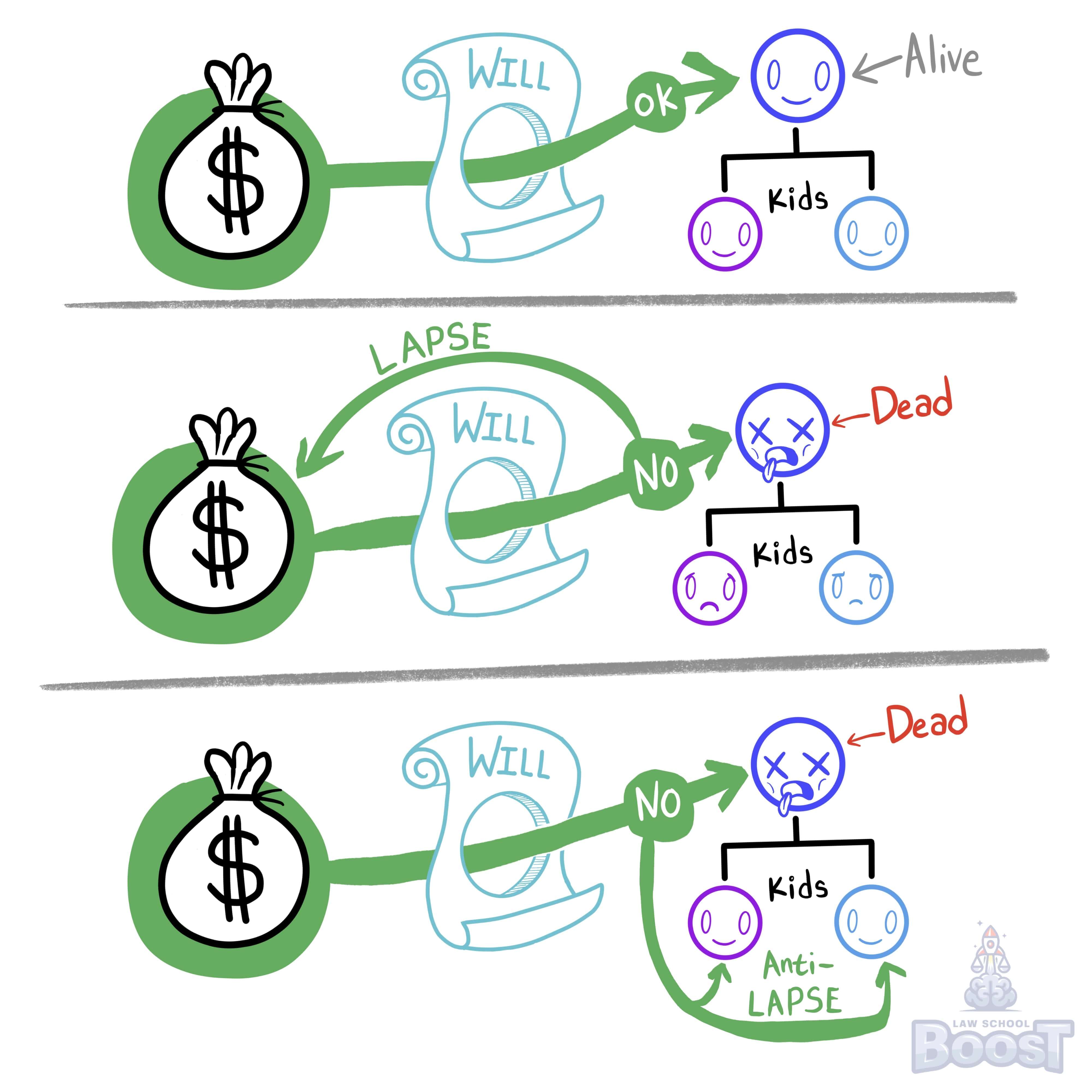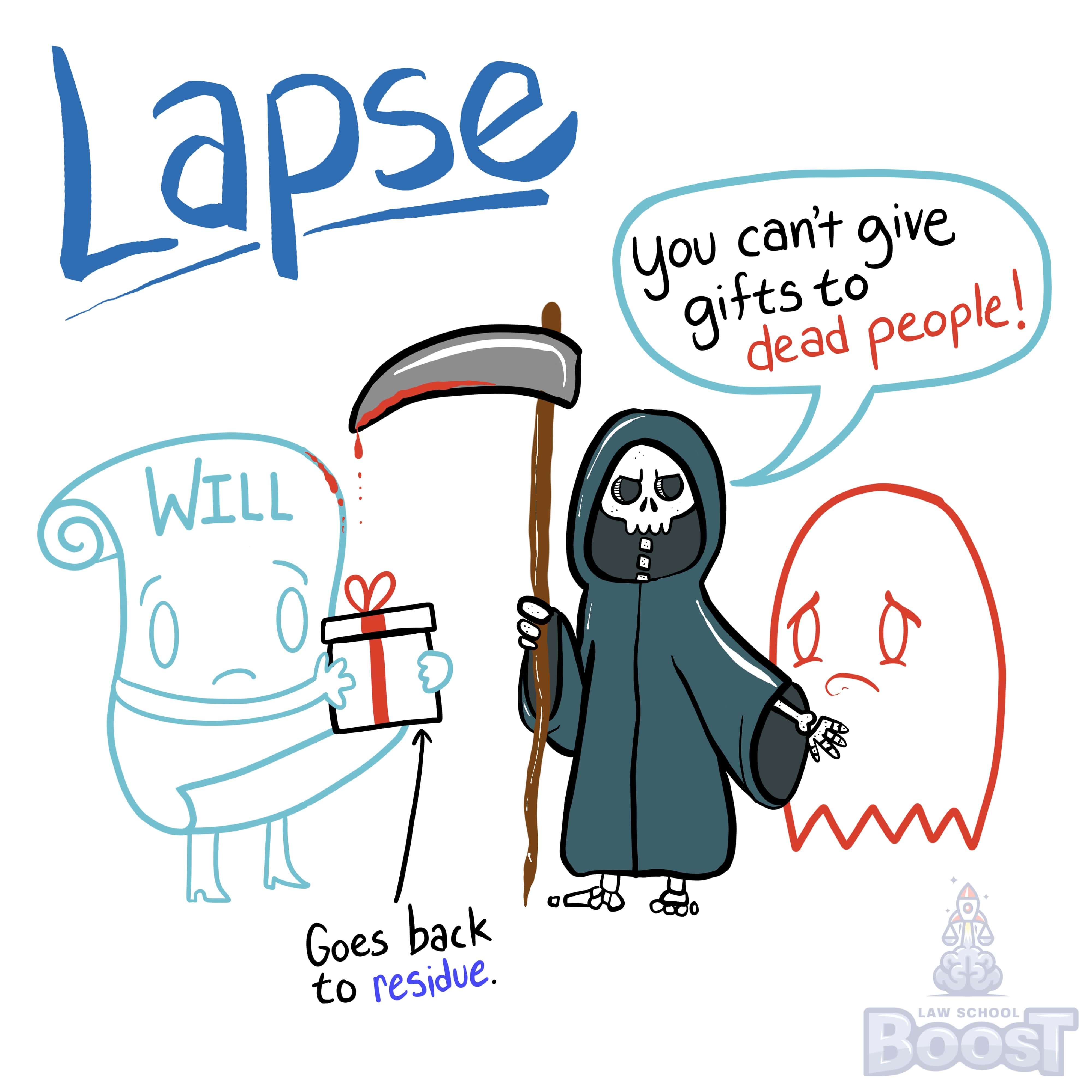😭
Wills • Changes in Beneficiaries
WILLS#041
Legal Definition
Anti-lapse applies if: (1) the deceased beneficiary is kindred of the testator or trustor or of the testator or trustor's surviving ex- or deceased spouse or domestic partner; and (2) the deceased beneficiary left issue surviving them. If the will evidences a contrary intention, such as a requirement that the beneficiary survive the testator by 30 days, the anti-lapse statute will not apply.
Plain English Explanation
Generally speaking, "lapse" is what we call a gift that fails because the person it was supposed to go to died first and you can't give gifts to dead people. However, California has an anti-lapse statute, which tries to salvage the gift. It applies when:
(1) the dead person who was supposed to get the gift is related to the person who created the will or trust by either blood or marriage; and (2) the dead person who was supposed to get the gift has descendants that are alive (children, grandchildren, etc.).
The only time this won't apply is if the will itself has clear language that the person must outlive them in order to get the gift.
(1) the dead person who was supposed to get the gift is related to the person who created the will or trust by either blood or marriage; and (2) the dead person who was supposed to get the gift has descendants that are alive (children, grandchildren, etc.).
The only time this won't apply is if the will itself has clear language that the person must outlive them in order to get the gift.
Hypothetical
Hypo 1: Bob writes a will that leaves Sam his house upon Bob's death. Sam has a son, George. On January 1, Sam is killed in an automobile accident. On January 5, Bob dies. Who gets Bob's house? Result: Not Sam, because he's dead, and not George either. Why? Because Sam wasn't family to Bob. For the anti-lapse statutes to kick in, Sam would need to be related. If we change the hypo a bit and say Sam is Bob's brother, then anti-lapse would pass the house to George.
Visual Aids




